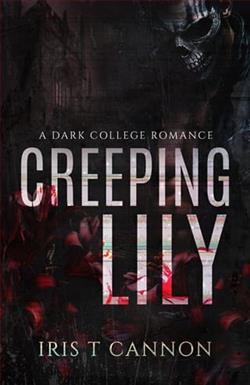Page 41 of Time for You
“Why aren’t you married?” she asked one night, having had about half a glass of wine too much. They were sitting on the small balcony that opened out from her bedroom, a soft spring breeze tickling her flushed cheeks. “You’re like, old enough.”
“Why aren’t you?” Henry replied, and okay, yeah, she liked his voice. It was low and rumbly in a way she felt deep down in her belly.
“It’s not that weird for a woman to be unmarried at my age anymore.”
“And it’s not that ‘weird’ for me to be unmarried at my age, either.”
“No, but it’s more likely you would be,” she argued. “Right?”
Henry sighed into the glass of white wine he’d been nursing. “Right.”
“Okay, so, why not?”
“Why aren’t you?”
“I asked you first,” she said.
Henry sighed again. “I haven’t found someone, I guess.”
“You guess?”
Henry looked at her, his eyes narrowed. “You’re being unbearably nosy.”
“Humor me,” she said. “You haven’t found someone, you said, but then you qualified it. Why?”
“It wasn’t that I’ve never met anyone, as you’d put it. But marriage wasn’t an option.”
“Why?”
Henry leaned his head back against the chair. “It’s a long story. Can I just leave it at that?”
“Fair enough,” Daphne said. “But can I ask you another question?”
“Sure,” he agreed.
“What do you miss the most? Aside from your family, of course.”
He thought for a long moment. “The quiet. And the stars. Even in the city, the lights weren’t as bright as these are, so there were more stars. And no infernal motors.”
“Infernal motors?” she asked with a grin. “What are you, eighty?”
“Somewhere around my sesquicentennial, actually.”
Daphne snorted, and Henry shot her a smile that did something unexpected to her heart. “It sounds nice,” she said honestly.
“It is, in some ways.”
“Only some?”
“Only some. I don’t know how to explain how strange and wonderful it is to me that you can prevent almost any disease.”
“Not any,” she protested.
“But most. My father died of influenza, and before we moved to our current house, we lived in a middle-class neighborhood that wasnot too far from housing for laborers. The things I saw, Daphne, the things I know happen every day—you can’t imagine it.”
“I probably can,” she said softly. “I spend my days surrounded by pain.”
“But there’s hope here. We have some, but not like this. Back home—most of the people you see, they wouldn’t have made it to a doctor, much less have a chance. And the babies ...” He shook his head. “Children die all the time. My own mother lost a babe before me, and she is considered lucky for only having lost one. Here, it’s so rare, and I don’t know if you understand how miraculous that is.”















